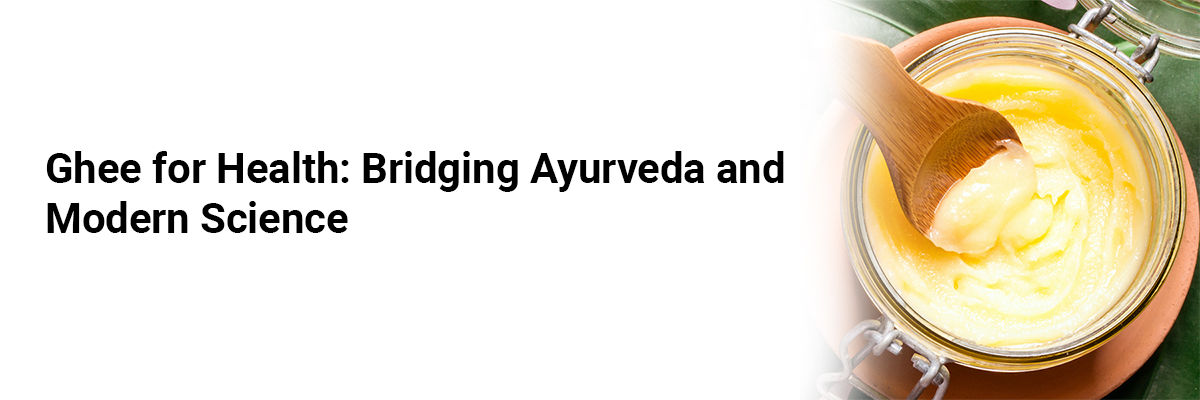
Ghee for Health: Bridging Ayurveda and Modern Science
The perception of dairy fats, particularly ghee, is varying as recent research has thrown light into their functional benefits. Ghee, a clarified butter integral to Indian cuisine and Ayurveda, is being rediscovered for its health properties. Ayurveda extensively documents ghee's therapeutic potential, categorizing it based on milk source and production methods. A literature review identified 774 mentions of ghee in Ayurvedic texts related to health, with cognitive health being the most highlighted benefit. However, modern research focuses more on cardiovascular health, wound healing, and skin health.
Individual ghee components, such as omega-3 fatty acids and short chain fatty acids (SCFAs), have shown promising effects for brain health, despite the dearth of research on ghee's cognitive effects. The gastrointestinal advantages of ghee are emphasised in Ayurveda, however this topic has received little attention in contemporary literature. Though understudied in recent research, ghee's restorative and immunomodulatory qualities are also well-known in Ayurveda.
In cardiovascular health, ghee's reputation is mixed; while some studies suggest it may lower certain cholesterol levels, others link it to increased risks of heart disease. Despite conflicting findings, ghee remains popular in traditional diets. Furthermore, ghee’s role in wound healing, skin health, and even potential anti-tumor properties show considerable promise, meriting further investigation. Overall, while scientific inquiry into ghee's health benefits grows, comprehensive studies are needed to clarify its health impacts across various domains.
Source: Kataria D, Singh G. Health benefits of ghee: Review of Ayurveda and modern science perspectives. J Ayurveda Integr Med. 2024 Jan-Feb;15(1):100819. doi: 10.1016/j.jaim.2023.100819. Epub 2024 Jan 5. PMID: 38181707; PMCID: PMC10789628.













Please login to comment on this article